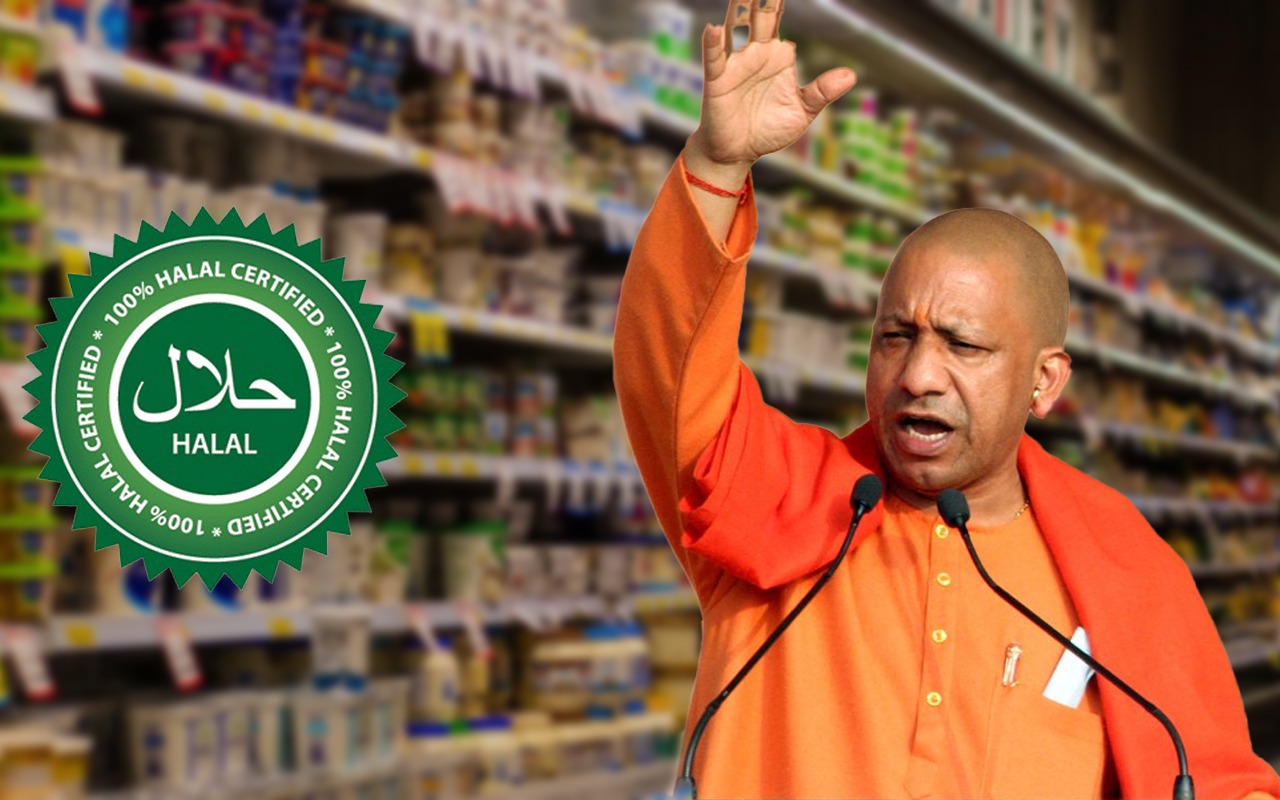The Uttar Pradesh government has imposed an immediate ban on halal-certified food products, initiating a crackdown across all 75 districts through the Food Safety and Drug Administration. Raids have been conducted at shopping malls, grocery shops, and retail outlets, covering the production, storage, distribution, and sale of halal-certified products, with exceptions for those intended for export. The Uttar Pradesh government’s concerns are about organizations issuing certifications for non-meat-related activities. Companies that do not comply with Shariah law are blacklisted and lose business, leading even a tea company to have “Shariah-compliant” stamps on its tea bags.
Yogi Adityanath government’s crackdown on this has sparked controversy, with some claiming it is an attack on Islam and restricting Muslims’ religious rights. Religious certification of dietary products, a longstanding practice, involves verifying that food and related items adhere to the dietary laws of specific religions, such as halal for Islam and kosher for Judaism. It extends beyond food to include a wide range of products, ensuring compliance with religious dietary restrictions.
The ban on “Shariah-compliant” certification in India aims to prevent the abuse of secularism by religious organizations that have established their own regulatory system, while only the government can issue quality certificates to companies. The concerns are about allowing religious organizations to override secular certification processes, which goes against the principles of a secular state. The issuing of “halal certificates” violates the right to work for non-Muslims, as only Muslims are allowed to carry out halal activities, creating a disproportionate impact on non-Muslims’ employment opportunities.
Also, animal rights activists criticize the inconsistency in banning bull racing but allowing halal certification, which involves the inhumane slaughter of animals. Halal certification is also seen as a way of segregating consumers based on their religious affiliations. Religious certification of products creates social fissures and divisions, separating consumers into halal and non-halal groups, and fostering intolerance or hostility. Halal certification may exclude or marginalize religious minorities or the poor, who may not have access to or afford halal products. The union government should consider imposing a national-level ban on halal certification to promote inclusivity.
The concerns regarding an international conspiracy behind the religious certification of products are not unfounded. It is perceived as a form of religious imposition on a broader consumer base that may not share the same beliefs or preferences. Halal certification compels non-Muslim consumers to indirectly support or endorse the Islamic faith, potentially violating their religious freedom or conscience. This creates a false impression that non-halal products are inferior or unsafe, impacting consumer choices and rights.










